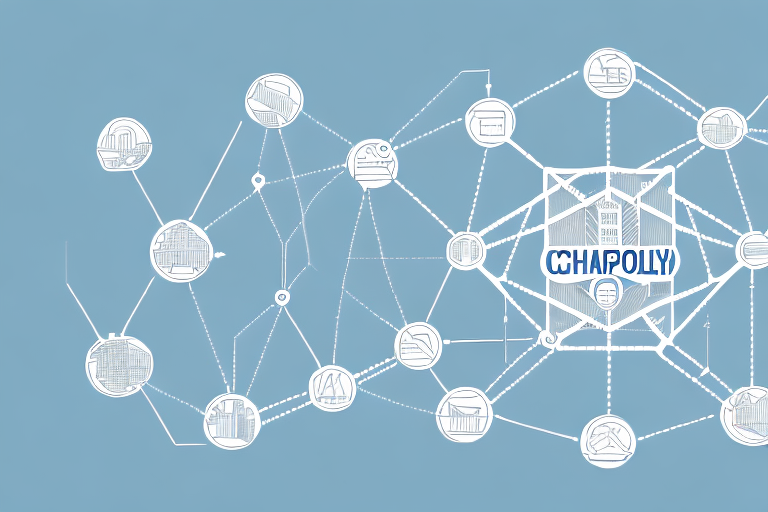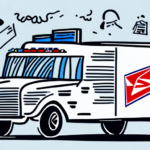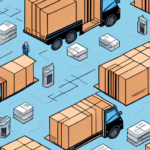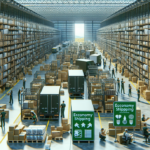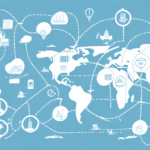Streamlining Your Supply Chain with Customs Clearance Solutions
In today's global economy, businesses rely heavily on their supply chain to remain competitive. The movement of goods across borders has become increasingly complex, and thus, customs clearance has become a crucial aspect of supply chain management. In this article, we will explore the importance of customs clearance for supply chain efficiency and ways in which businesses can streamline their operations with customs clearance solutions.
Why Customs Clearance is Crucial for Supply Chain Efficiency
Customs clearance is the process of ensuring that goods entering or leaving a country comply with the regulatory requirements of the destination or source country. Failure to comply with these regulations can lead to fines and even seizure of goods, resulting in delays and losses for businesses. According to the World Bank's Doing Business Report, delays at customs account for approximately 14% of total transportation costs. Customs clearance plays a vital role in supply chain efficiency as it affects the speed of delivery and cost of goods. Bottlenecks in the customs clearance process can cause delays and increase the inventory carrying costs for businesses. Therefore, having an efficient customs clearance process is essential for businesses to maintain a competitive edge.
One of the biggest challenges in customs clearance is navigating the complex and ever-changing regulations of different countries. This requires businesses to stay up-to-date with the latest regulations and have a thorough understanding of the documentation required for each shipment. In addition, customs clearance can also involve dealing with multiple parties, such as freight forwarders, customs brokers, and government agencies, which can further complicate the process.
However, despite the challenges, investing in an efficient customs clearance process can bring significant benefits to businesses. By streamlining the process, businesses can reduce the time and cost of shipping, improve inventory management, and enhance customer satisfaction. In addition, having a reliable customs clearance process can also help businesses avoid costly fines and penalties, and ensure compliance with international trade regulations.
Understanding the Customs Clearance Process
The customs clearance process can vary depending on the country and mode of transportation. However, the general steps involved are as follows:
- Documentation – Exporters and importers must provide accurate documentation for customs officials to review.
- Inspection – Customs officials inspect goods to ensure that they comply with regulations.
- Duty and Taxes – Depending on the value, type of goods, and destination, duty and taxes may be levied on the goods.
- Release – After completion of the above steps and payment of any applicable duties and taxes, the goods are released.
Challenges Faced in Customs Clearance and How to Overcome Them
There are several challenges faced in customs clearance, some of which are:
- Complex regulations – Customs regulations can be complex and differ from country to country, making it challenging for businesses to keep up with necessary compliance requirements.
- Language barriers – Communication in languages other than English can prove to be complicated and lead to errors in documentation.
- Incorrect documentation – Faulty or incomplete documentation can result in delays in customs clearance or even seizure of goods.
Businesses can overcome these challenges and streamline their customs clearance process by:
- Hiring a customs broker – Customs brokers have expertise in customs regulations and can ensure that all documentation meets customs requirements and regulations.
- Implementing technology – Technology, such as automated customs clearance systems, can reduce the time and paperwork required for customs clearance.
- Outsourcing – Outsourcing customs clearance can be beneficial as it allows businesses to focus on their core competencies while ensuring that customs clearance is managed efficiently.
Another challenge that businesses face in customs clearance is the lack of transparency in the process. Customs clearance can be a time-consuming and opaque process, with little visibility into the status of goods and the reasons for any delays. This can lead to frustration and uncertainty for businesses, as well as potential financial losses due to delayed shipments.
To overcome this challenge, businesses can work with their customs brokers or logistics providers to ensure that they have access to real-time tracking and status updates for their shipments. This can help them to better plan and manage their supply chain, as well as provide greater visibility and transparency into the customs clearance process.
Benefits of Streamlining Your Supply Chain with Customs Clearance Solutions
By streamlining their supply chain with customs clearance solutions, businesses can benefit in several ways, including:
- Reduced costs – An efficient customs clearance process can lead to reduced costs by saving time and minimizing the risk of errors and fines.
- Faster delivery – Streamlining customs clearance can lead to faster delivery of goods, reducing inventory carrying costs.
- Better customer service – Faster and error-free deliveries lead to better customer satisfaction.
- Reduced risk – An efficient customs clearance process reduces the risk of penalties, seizures, and delays from customs.
Aside from the benefits mentioned above, streamlining your supply chain with customs clearance solutions can also help businesses in:
- Improving supply chain visibility – With a streamlined customs clearance process, businesses can have better visibility of their supply chain, allowing them to identify potential bottlenecks and areas for improvement.
- Enhancing compliance – An efficient customs clearance process ensures that businesses comply with all relevant regulations and laws, reducing the risk of legal issues and reputational damage.
Overall, streamlining your supply chain with customs clearance solutions can lead to significant improvements in efficiency, cost savings, and customer satisfaction, making it a worthwhile investment for businesses of all sizes.
How Technology is Revolutionizing the Customs Clearance Industry
Technology has revolutionized the customs clearance industry by providing solutions that reduce manual paperwork, processing time, and errors made by humans. Automated customs clearance systems eliminate the need for paper-based documentation, and they enable quicker clearance times. Additionally, Electronic Data Interchange (EDI) systems allow businesses to exchange data with customs officials automatically, reducing the time and effort needed to submit customs documentation. Digital solutions also provide improved visibility and tracking throughout the customs clearance process.
Another way technology is revolutionizing the customs clearance industry is through the use of artificial intelligence (AI). AI-powered systems can analyze large amounts of data and identify potential risks or anomalies in shipments, allowing customs officials to focus their attention on high-risk shipments. This not only improves the efficiency of the clearance process but also enhances security measures.
Furthermore, technology has enabled the development of mobile applications that allow businesses to manage their customs clearance processes on-the-go. These apps provide real-time updates on the status of shipments, allow for the submission of documentation, and provide access to customs regulations and requirements. This level of convenience and accessibility has made the customs clearance process more efficient and streamlined for businesses of all sizes.
Choosing the Right Customs Brokerage Solution for Your Business
Choosing the right customs brokerage solution is essential for businesses. Factors to consider when selecting a customs broker include:
- Experience – Experience in managing customs procedures in several countries is crucial, particularly for businesses with global supply chains.
- Expertise – Experts in customs clearance regulations can provide guidance and ensure that all documentation meets customs compliance requirements.
- Technology – Customs brokers that provide digital solutions such as Automated Broker Interface (ABI) and EDI can increase efficiency.
- Customizable services – The ability to customize services to match your business's needs is beneficial in ensuring all bases are covered.
Another important factor to consider when choosing a customs brokerage solution is the level of customer service provided. A customs broker that offers personalized support and is available to answer questions and provide updates can make the customs clearance process smoother and less stressful for businesses.
It is also important to consider the cost of the customs brokerage solution. While it may be tempting to choose the cheapest option, businesses should weigh the cost against the level of service provided and the potential risks of non-compliance. A customs broker that offers competitive pricing while still providing quality service is the ideal choice.
Improving Visibility and Transparency in Your Supply Chain with Customs Clearance Solutions
Improving the visibility and transparency of your supply chain with customs clearance solutions is essential in ensuring the success and efficiency of your operations. Customs clearance solutions can provide real-time visibility into shipments, reducing the risk of lost or misplaced goods. Digital solutions allow for better management and tracking of inventory, minimizing the risk of inventory errors and improving accuracy.
Best Practices for Successful Customs Clearance
Best practices for successful customs clearance include:
- Ensure accurate documentation – Providing accurate documentation helps customs officers carry out their responsibilities effectively.
- Understand regulations – Staying up to date on customs regulations ensures compliance and minimizes the risk of penalties.
- Partner with a customs broker – Customs brokers can provide expert advice, manage the customs clearance process, and ensure compliance.
- Utilize technology – Automated customs clearance systems improve efficiency and reduce the risk of errors.
- Communicate – Communication with all parties involved in the supply chain ensures everyone is kept up to date with the status of the shipment.
The Role of Compliance in Effective Customs Clearance
Compliance is essential in ensuring effective customs clearance. It ensures that goods comply with the laws and regulations of the destination country. Compliance also ensures that businesses are equipped to perform due diligence in preventing fraud and corruption. An effective compliance program should aim to minimize the risk of non-compliance, detect and address any areas of non-compliance, and provide a framework for continuous improvement.
Case Studies: Successful Implementation of Customs Clearance Solutions
Case studies have shown the benefits of implementing customs clearance solutions. One such example is a global manufacturer of consumer electronics that utilized automated customs clearance systems. They reduced customs clearance processing time from six hours to as low as five minutes, improving efficiency and minimizing costs. Another example is a multinational logistics provider that implemented digital solutions, enabling them to reduce manual work and increase automation, improve speed and accuracy, and enhance customer experience.
Future Trends and Innovations in Customs Clearance
The customs clearance industry is continually evolving, with new trends and innovations emerging regularly. One trend is the increasing use of data analytics and the integration of artificial intelligence (AI). AI can enhance risk management, improve cost optimization, and reduce the need for manual input. Other trends include the use of Blockchain technology for authentication, improved supply chain visibility, and better management of customs documentation. These technologies are predicted to revolutionize customs clearance and supply chain management in the future.
Common Myths about Customs Clearance Debunked
There are several myths regarding customs clearance, such as that it is too complicated or that it only applies to large businesses. However, these are all untrue. Customs clearance applies to all businesses, regardless of their size or industry. Moreover, with the right customs clearance solutions, the process can be streamlined, and the complexities can be managed effectively.
The Cost-Benefit Analysis of Outsourcing Your Customs Clearance Process
The cost-benefit analysis of outsourcing your customs clearance process can be significant. Outsourcing can lead to reduced costs by eliminating the need for in-house customs compliance experts and save time by allowing businesses to focus on their core competencies. By outsourcing to digital customs brokerage firms, businesses can also benefit from reduced processing times, improved accuracy, and enhanced supply chain visibility.
In conclusion, customs clearance is an essential aspect of supply chain management that cannot be ignored. By streamlining their customs clearance processes with the appropriate solutions, businesses can reduce costs and delays, improve accuracy, and enhance customer satisfaction, ultimately leading to a more successful and competitive enterprise.















